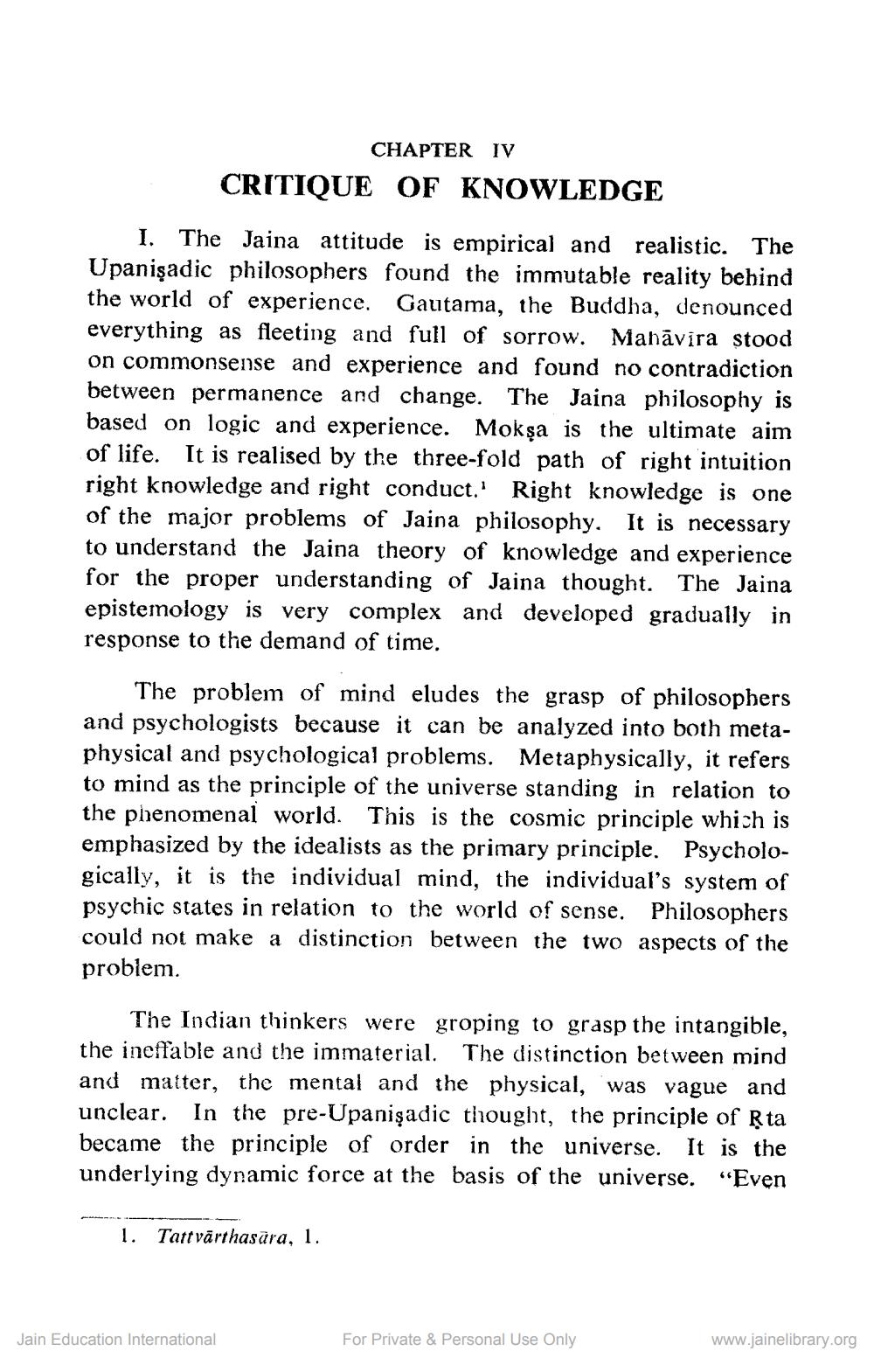________________
CHAPTER IV
CRITIQUE OF KNOWLEDGE
I. The Jaina attitude is empirical and realistic. The Upanisadic philosophers found the immutable reality behind the world of experience. Gautama, the Buddha, denounced everything as fleeting and full of sorrow. Mahavira stood on commonsense and experience and found no contradiction between permanence and change. The Jaina philosophy is based on logic and experience. Mokşa is the ultimate aim of life. It is realised by the three-fold path of right intuition right knowledge and right conduct.' Right knowledge is one of the major problems of Jaina philosophy. It is necessary to understand the Jaina theory of knowledge and experience for the proper understanding of Jaina thought. The Jaina epistemology is very complex and developed gradually in response to the demand of time.
The problem of mind eludes the grasp of philosophers and psychologists because it can be analyzed into both metaphysical and psychological problems. Metaphysically, it refers to mind as the principle of the universe standing in relation to the phenomenal world. This is the cosmic principle which is emphasized by the idealists as the primary principle. Psychologically, it is the individual mind, the individual's system of psychic states in relation to the world of sense. Philosophers could not make a distinction between the two aspects of the problem.
The Indian thinkers were groping to grasp the intangible, the ineffable and the immaterial. The distinction between mind and matter, the mental and the physical, was vague and unclear. In the pre-Upanisadic thought, the principle of Rta became the principle of order in the universe. It is the underlying dynamic force at the basis of the universe. "Even
1. Tattvärthasara, 1.
Jain Education International
For Private & Personal Use Only
www.jainelibrary.org




